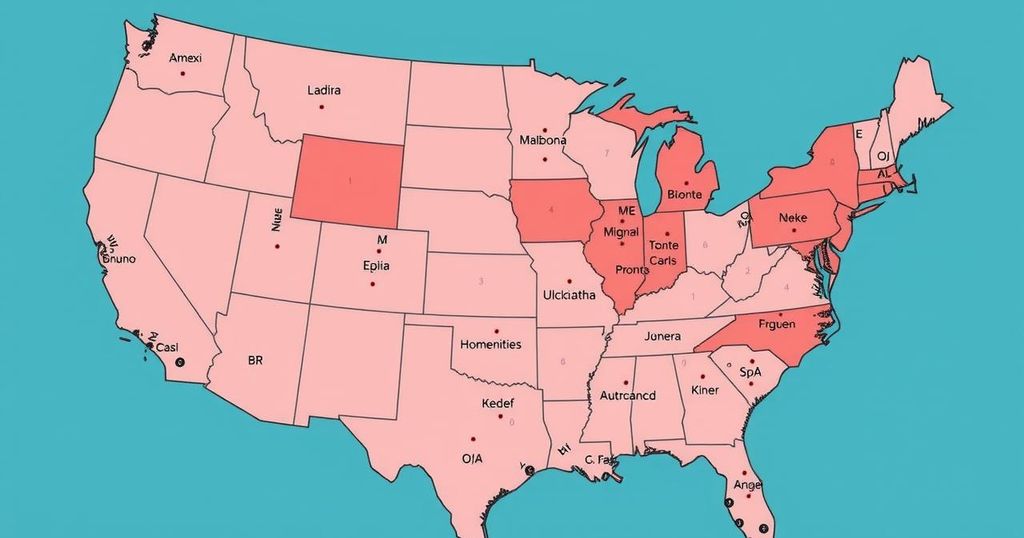The 2024 presidential election is poised to influence U.S. national migration policy significantly. Public opinion on immigration has shifted dramatically, with recent statistics indicating an increase in support for reduced immigration. This change has been influenced by geopolitical events resulting in surging migration flows, as well as politicized narratives that frame these movements as threats. The need for a comprehensive migration reform is pressing but seems unlikely given the current political climate and proposed policies from the new administration.
The aftermath of the 2024 presidential election is expected to bring significant changes to national migration policy. Over the past four years, public sentiment surrounding immigration has undergone a remarkable transformation, with support for decreasing immigration rising from 28 percent in 2020 to 55 percent in 2024. This shift has been influenced by various factors, including political rhetoric framing immigration as an invasion, and the surge in migrants from conflict zones such as Venezuela, Haiti, Ukraine, and Afghanistan.
The concept of asylum, grounded in both international and domestic law, remains critical to migration discourse. However, excessive push factors precipitated an influx of migrants who struggled to substantiate their asylum claims amidst a backlog of cases. Misconceptions fueled hostility toward these newcomers, notably inflamed by the actions of Republican governors transporting migrants to Democratic cities to draw attention to the situation.
The patterns of migration observed highlight the complexities involved in formulating public policy, particularly in democracies like the United States where public opinion often sways policy direction rather than grounded debate. The incoming administration has already proposed stringent measures, including large-scale deportations and restrictive immigration policies that threaten to exacerbate human suffering without addressing the underlying economic needs for labor and family reunification.
The urgency for comprehensive immigration reform is underscored by the current system’s deficiencies, not having seen significant updates since 1965. While the potential for such reform appears bleak due to political promises of strict enforcement, addressing public misconceptions is essential to facilitating more humane and effective policies. Hence, to genuinely support migrants, stakeholders must engage in constructive dialogue and shift public perspective towards recognizing the underlying reasons and needs associated with migration.
The topic of migration policy in the United States has gained significant prominence following the outcomes of the 2024 presidential election. Previously marginalized discussions on immigration reforms have evolved into urgent considerations given the dramatic shifts in public sentiment and policy implications. The recent surge in migrants stemming from geopolitical crises highlights the interconnectedness of foreign affairs and domestic immigration policy, necessitating a reevaluation of existing frameworks and public attitudes towards newcomers seeking refuge and economic opportunities.
In conclusion, the evolving landscape of immigration in the United States post-2024 election presents a dual challenge: the urgent need for comprehensive reform in response to systemic deficiencies, and the requisite for shifting public opinion towards a more empathetic understanding of migrants’ circumstances. Without decisive action and societal consensus, the immigration framework risks perpetuating human suffering while failing to address vital labor shortages and family reunification needs. Advocating for sensible reforms that resonate with national values remains paramount.
Original Source: www.miamiarch.org






